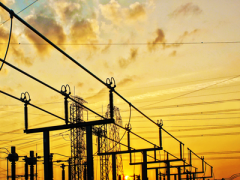EU climate and energy policy should be aimed at innovation
An 80% reduction of greenhouse gas emissions, that is the EU ambition for 2050. Such a drastic reduction requires a much more vigorous renewal of our energy system. Setting a target for emission reduction alone is not sufficient. This will need to be complemented by policy and targets for low-carbon innovation and energy efficiency. Both are vital components of a low-carbon economy but both currently do not make enough progress.
In the light of its ambition for 2050, the European Union (EU) formulated a set of climate and energy targets for 2020. However, there are no legally binding targets for the period after 2020. These are currently subject of discussion. At the request of the Dutch government, PBL and Ecofys examined possible options for the most cost-effective track towards a low-carbon economy in 2050.
Carbon pricing, by way of the current EU ETS, is a cost-effective and efficient way to reduce greenhouse gas emissions in the short term. But it proves to be insufficient to stimulate innovations and energy efficiency. For this, complementary targets and policies are needed.
The targets for renewable energy have to date stimulated the development and cost-price reduction of several important low-carbon technologies. However, not all renewable energy is innovative or sustainable (such as some forms of biofuels or co-firing wood chips in coal power plants). And not all innovations can be categorised as renewable energy, for example electric cars and carbon capture and storage (CCS). Specific targets for innovative low-carbon technologies would serve as a much better incentive for energy innovation.
Although many energy-efficiency improvements are currently already cost-effective, they are not being made. One of the reasons is that those who carry the costs of these improvements do not themselves benefit from a lower energy bill. Here, too, complementary policies are needed, such as energy standards for buildings or emission performance standards for new passenger cars.




